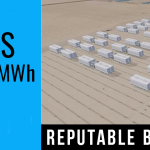
In an Order on Rehearing and Clarification issued at its May open meeting, the Federal Energy Regulatory Commission (FERC or “Commission”) generally affirmed Order No. 841, its 2018 Final Rule on electric storage.1 Electric storage resources—including batteries, flywheels, and pumped-hydro projects—are capable of receiving electricity from the grid and storing it for later injection back into the grid. Order No. 841 is intended to pave the way for storage to play a larger role in the wholesale power markets regulated by FERC—a necessity, some argue, as the grid becomes increasingly reliant on intermittent resources such as wind and solar.
In Order No. 841, issued February 15, 2018, FERC determined that current Regional Transmission Organization (RTO) and Independent System Operator (ISO) market rules are unjust and unreasonable.2 FERC determined that the existing rules impose unlawful barriers to participation for storage resources, thereby reducing competition and failing to ensure just and reasonable rates.3 FERC required each RTO/ISO to revise its tariff to establish rules that facilitate storage participation in the wholesale markets.4 Each RTO/ISO must ensure that storage resources can provide all of the energy, capacity and ancillary services they are capable of providing and are eligible to set wholesale market clearing prices as both a seller and a buyer.5
The most contentious issue in the proceeding was a familiar one: where, exactly, is the line between federal and state jurisdiction in the power markets?6 Under the Federal Power Act (FPA), FERC has jurisdiction over wholesale sales of electric energy, including the ISO/RTO markets, as well as the transmission of electric energy in interstate commerce.7 States, meanwhile, have jurisdiction over retail sales of electric energy and the local distribution of electric energy to end users.8 Many electric generators, particularly renewables and other nontraditional resources like electric storage, are interconnected at the state-regulated distribution level, but sell their output into the FERC-regulated wholesale markets. Order No. 841 applies to all storage resources that meet certain technical requirements, regardless of whether they are interconnected to the transmission system, the distribution system or are located “behind-the-meter.”
Several parties argued on rehearing that FERC exceeded its jurisdiction in the Final Rule when it determined that states may not decide whether storage resources interconnected at the distribution level may participate in the RTO/ISO markets. According to these parties, the Final Rule would mandate that storage resources be given access to local distribution facilities, over which FERC has no authority, so that they may reach the FERC-regulated wholesale markets. Putting aside the jurisdictional question, other parties asked FERC to exercise its discretion to adopt a state “opt out” for facilities interconnected to state-jurisdictional distribution facilities, similar to the opt-out provision FERC has provided for demand response.





